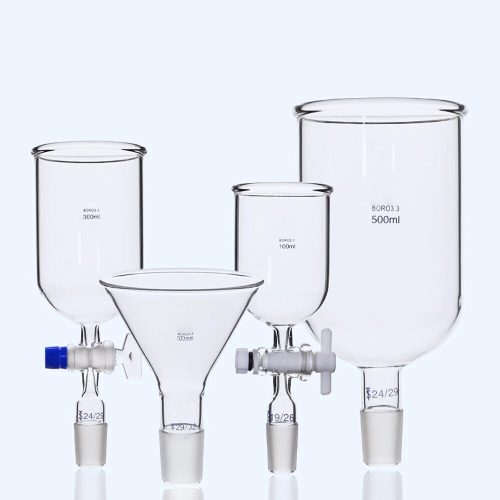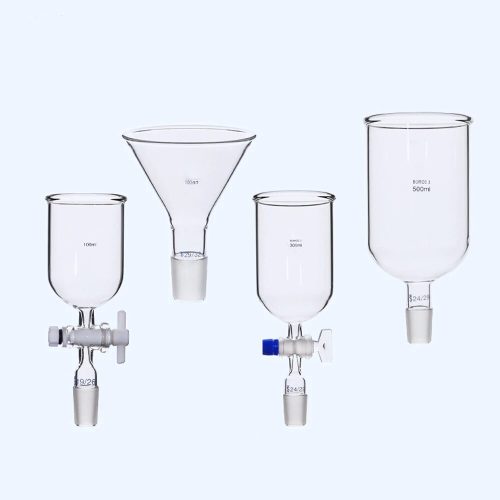Borosilicate lab glassware is known for its remarkable durability and precision, making it a valuable asset in scientific research. To maximize the lifespan of your glassware and ensure consistent, accurate results, it’s essential to follow proper maintenance and care practices. In this article, we’ll provide you with valuable tips to help you maintain and care for your borosilicate lab glassware effectively.
1. Cleaning Your Glassware
Cleaning your glassware is a fundamental step in maintaining its integrity and functionality. Follow these tips for cleaning your borosilicate lab glassware:
- Use Mild Detergents: Use mild, non-abrasive detergents to clean your glassware. Avoid harsh chemicals that can damage the glass or leave residues.
- Rinse Thoroughly: After cleaning, rinse the glassware with deionized water to remove any detergent residues. Rinse multiple times if necessary.
- Avoid Scrubbing: Do not use abrasive scrubbers or brushes that can scratch the glass. Instead, use a soft brush or a suitable laboratory cleaner.
2. Handling Glassware Properly
Proper handling is crucial to prevent accidents and extend the life of your borosilicate glassware:
- Avoid Impact: Handle glassware with care and avoid dropping or knocking it against hard surfaces. Borosilicate glass is durable but not indestructible.
- Use Proper Supports: When heating glassware, always use the appropriate supports, such as a Bunsen burner or a hot plate, to distribute heat evenly and prevent thermal stress.
- Wear Safety Gear: When working with glassware, consider wearing safety gear such as lab coats, gloves, and safety goggles to protect yourself and prevent accidents.
3. Preventing Thermal Stress
Borosilicate glass is known for its ability to withstand thermal stress, but precautions should still be taken:
- Avoid Sudden Temperature Changes: Gradually heat or cool your glassware to avoid sudden temperature changes, which can lead to cracking or shattering.
- Use a Heat Diffuser: When heating with an open flame, use a heat diffuser to evenly distribute heat and minimize stress on the glass.
4. Storage and Sterilization
Proper storage and sterilization are essential for maintaining the purity of your borosilicate lab glassware:
- Store Clean and Dry: Ensure that glassware is clean and thoroughly dried before storing it to prevent the growth of microorganisms and contamination.
- Proper Sterilization: If sterilization is required, follow the manufacturer’s recommendations for the specific glassware to avoid thermal stress or chemical damage.
5. Regular Inspection and Maintenance
Regularly inspect your borosilicate glassware for any signs of wear, including cracks, chips, or chemical damage. Replace any damaged glassware promptly to avoid compromising the accuracy of your experiments.
6. Invest in Quality Glassware
Choosing high-quality borosilicate glassware from reputable manufacturers is an investment in longevity. Quality glassware is less likely to develop defects or impurities that can affect your research.
In conclusion, maintaining and caring for your borosilicate lab glassware is essential for ensuring its longevity and preserving its precision. By following these tips, you’ll not only extend the life of your glassware but also enhance the reliability and accuracy of your research. Proper care of your glassware is a testament to your commitment to scientific excellence and safety in the laboratory.


